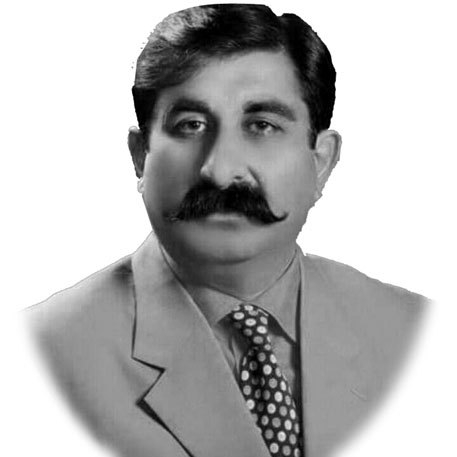Jeopardised rule of law
THE other day Malik Muhammad Farooq Civil Judge Faisalabad was brutally beaten by so-called notorious advocates.
Not too long from now, another group of so-called vagabond advocates of Fateh Jang, Attock, maltreated and called names to the Additional District & Sessions Judge Dr Sajida Choudhry in the court.
Neither the government nor the higher courts took any serious action against unjust conduct and behaviour of the accused advocates who were shameful references to the noble profession of judiciary and precisely the Bar. In lower courts, judges are always left aside at the mercy of such blacksheeps of the judiciary.
Government should provide foolproof security to the judges so that they could perform their duties safely.
Literally, judges are threatened and humiliated. During General Musharraf regime, in judiciary restoration movement of former Chief Justice Supreme Court Iftkhar Choudhry, blacksheeps amongst countless advocates came out and emerged as an unlawful and illegal group of uncivilized people.
As a result of the restoration of judiciary movement CJ Iftkhar Choudhry was reinstated but judiciary as an institution fell hostage in the clutches of so-called lawyers who sabotaged lofty objective of the restoration of judiciary.
Since then advocates have become vagabonds. These blacksheeps force the judges for unjustified and unlawful decisions.
Maltreatment and physical assault on the judges have become very common. Rather to feel regrets on their misconduct the accused advocates never say sorry to the judges.
More so very disgustingly these so-called advocates raise hue and cry and unnecessarily go on strike against the judges to blackmail them and the judicial system as a whole.
Such blacksheeps unlawfully, unethically and immorally have destroyed judicial decorum, procedures and dignity of the bonafied profession of judiciary.
In the movement of restoration of judiciary, involvement of political element created more distortion and chaos.
Our media has no time to highlight news related to common man and district level functionaries of the government because of its own understandable interests and priorities.
News about high level politicians, security institutions, artists, clerics, sports, and judges of higher courts catch attention of the media.
Media seldom bother to cover incidents like those of Fateh Jang and Faisalabad victim judges.
In our country the law has been used as a tool for personal gains, or as a hammer to achieve illegitimate goals regardless of the cost.\ Rule of law should have been the absolute parameter to operate in our country. But “Might is right” is the only rule in practice in our polarised society.
No person, or institution of State, should be above law. At its core, this is an accountability provision. Those who flout the law must be held accountable — no matter who they are. The imbalance of power that courses through Pakistan reflects in the law.
Our history shows that the law has gone above and beyond to hold the accused accountable, it beats a hasty retreat when it comes to dictators and those who facilitate them.
It is shocking how the law is used to grant impunity to some of the most draconian actions taking place in certain parts of the country.
Unfortunately, the entire nation is working above the jurisdiction of law no matter who is who.
Pakistan has always had difficult relationship between the rule of law and the masses. Among the first world the rule of law means the rule of law and that’s all. All arbitrary decisions are prone to quash the rule of law.
An authoritarian order manifests the rule of power instead of the rule of law. Rule of law entails equality of all the citizens irrespective of sex, caste, creed, colour or social status and ensures justice to all.
If basic human rights of any individual (judges) can’t be asserted in a court, there is no rule of law left for a modest helpless person.
No civilized society can exist in absence of a regular system of justice and independent judiciary consisting of highly merited and conscientious judges.
The rule of law implies that government authority may only be exercised in accordance with written laws, which are adopted through an established procedure. The principle is intended to be a safeguard against arbitrary rulings in individual cases.
The rule of law is fundamental to any kind of democratic order whether it is parliamentary or presidential form of government. The supremacy of law means individuals and government are subject to law.
A concept of justice which emphasizes interpersonal adjudication, law based on standards and the importance of procedures.
The rule of law is a cornerstone of well-functioning of political system while if it is blatantly violated, the establishment of political structure in the country is jeopardized.
Absence of rule of law has fractured our political, judicial, economic and social systems. It is tragic that even after seven decades of its existence the State is still looking for ‘sustainable democracy’.
The rule of law ensures stability, discipline and order in the society. Its absence and rampant corruption leading to erosion in social values are two main hurdles to the betterment and development of our country. The rule of law is meaningless when the law itself becomes flawed.
We should evaluate where the behaviour has gone wrong and urgently need to promulgate constitutional, legal and institutional reforms which could guarantee that people of Pakistan enjoy human rights free from discrimination and fear.
The law and the constitution are living and vibrant document that determine the future direction of the nation, provided there is respect for the document that stands for rule of law.
The law must be applied equally to everyone. No person, or institution of state, should be above the law.
The law makers, custodians and the masses should honour law and the constitution for safer and better respectful future of our generations.
—The writer, based in Islamabad, is book ambassador, columnist and author of several books.










